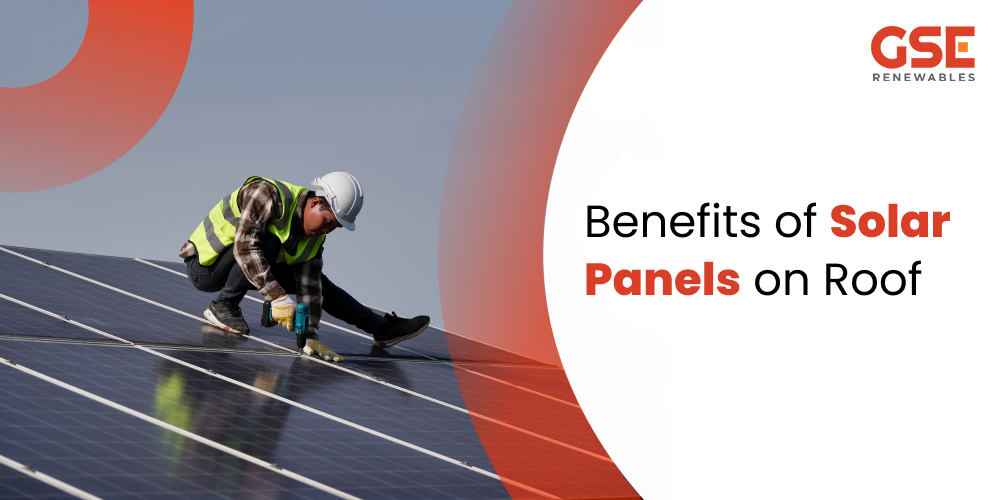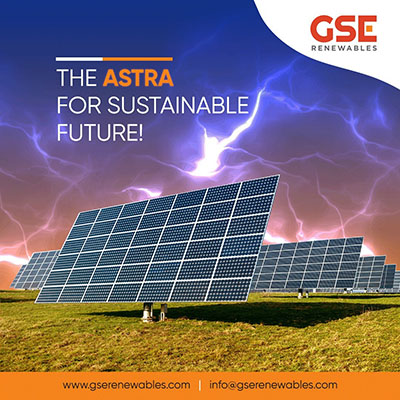500 kW Solar Power Plant Cost in Gujarat: Complete Price & Savings Guide
Nov 26

Choosing a 100kW solar panel system is a great option for businesses of any size in India. Resident Welfare Associations (RWA) and Group Housing Societies (GHS) are also getting these systems at discounted prices. Going solar is a smart way to lower your costs and be more independent with your energy.
Cost Reduction: The financial savings that come with solar rooftop installation are one of its major advantages. Rooftop solar tariff quotes are 17% and 27% less expensive than industrial and commercial tariff rates, respectively. Industries using solar are sure to experience growth over the next few years because solar panel prices are on the decline.
Cuts Down on Carbon Footprint: From the very beginning of installing the rooftop panel to the electricity produced by PV cells, no health risks are present, and no gasses that trap heat and fuel global climate change are produced. In addition to not producing carbon dioxide, it also doesn’t produce any of the other hazardous pollutants or wastes connected with coal, such as sulfur dioxides, nitrogen oxides, or mercury.
Embracing Energy Independence with Rooftop Solar Panels: Are you fed up with unexpected power cuts or high electricity bills? Consider installing a rooftop solar power plant with battery storage at home for energy independence. This setup allows you to use your electronic devices and appliances whenever you need them, without relying on the grid. It’s called an off-grid solar solution, ensuring uninterrupted power for your comfort and convenience.
Low Costs of Maintenance: Rooftop solar system is an economical option. It only needs periodic excellent cleaning and maintenance, which is not really a difficult operation. The average solar rooftop has a 25-year life expectancy, making the investment worthwhile. Basically, there are no significant expenses. We have a system, called asset management technology, that keeps track of the maintenance and health of your solar panels. If there is ever a problem, you will be informed right away.
Decrease in Electricity Costs: Your electricity expense can be reduced by installing solar panels on roof for your home or place of business. Homes around the nation are powered by coal, oil, and natural gas when using a typical electricity connection. You may save money and protect the environment by having solar panels installed on the roof of your house. Of course, every home is different and has a varied need for solar panels.
Adaptable to the Indian Climate: Solar roof panel benefits our nation is geographically positioned in such a way that it receives plenty of tropical sunlight. India boasts some of the best solar energy harvesting conditions in the world because of its nearly 300 sunny, clear days per year.
Installation doesn’t require any additional room: The concept is both workable and sustainable because the system is installed on the rooftops of business or residential buildings (as is obvious from the name!). Additionally, having a rooftop solar system installed will raise a home’s market value, which is a benefit!
Government Assistance: The 5% tax rate applies to rooftop solar power systems. If one excludes the 0% tax band, it is the most alluring tax rate that the government provides. One of the few products in India that are exempt from this low tax bracket is this one.
This investment is safe: The price of electricity is always changing. Therefore, it is challenging to estimate the cost of electricity over a specific time period. On the other hand, it is simple to estimate the cost of power produced when it comes to electricity produced by solar rooftops. In reality, it is possible to estimate how much it will cost to produce electricity in another 10 years. This makes it a safe investment.
It widens the availability of energy: Even though India’s power shortage is steadily improving, many people still lack sufficient and dependable access to electricity in both urban and rural locations. These folks must use substitutes, like diesel generators. These alternatives have detrimental consequences on one’s health and have unstable running expenses. Solar energy can provide a cheap source of electricity in this situation.
Government Subsidy on Solar Panels: The Indian government is promoting solar power by offering subsidies or financial assistance in many states. For instance, in Punjab, you can get a 40% subsidy on rooftop solar systems up to 3kW, while in Delhi, the subsidy is 30% for the same system size.
GSE Renewables is one of the leading solar rooftop companies dedicated to facilitating investment in clean and sustainable renewable energy projects for businesses in India. GSE Renewables uses epc solar, epc renewables, and a turnkey end-to-end approach to address industry difficulties and strengthen the ecosystem of offtaker-investors. GSE Renewables provides the most effective solutions, solar panels at affordable solar rooftop cost, and offers maintenance services for solar systems with a combined expertise of more than 250 years and the successful administration of 30 MW of solar energy firms.
There are many benefits to installing a solar system on your home or business. Here’s our list of the most important advantages of solar energy to keep in mind:
Rooftop solar refers to a photovoltaic system in which the solar panels that generate power are positioned on the roof of a home or business building or structure. These systems are photovoltaic modules, mounting systems, wires, solar inverters, and numerous electrical accessories. Megawatt-range capacity ground-mounted photovoltaic power plants are far larger than rooftop-mounted systems. Rooftop PV systems on residential buildings normally have a capacity between 5 and 20 kilowatts (kW), but those on commercial buildings typically have a capacity of 100 kW or more.
There are many advantages associated with installing grid connected rooftop solar PV power plants. Some of them are:
For more details on PV power plant installation, contact GSE Renewables right away!
The five main advantages of solar are as discussed below:
